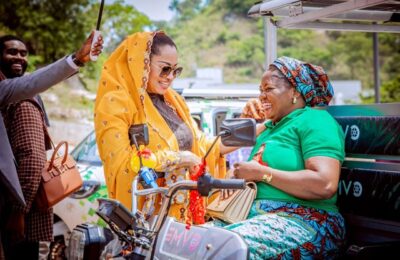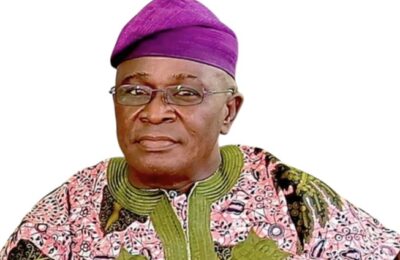Nigeria, Africa’s most populous nation, stands today at a moral and political junctions. Its democracy, once hailed as the beacon of post-colonial promise, now flickers like a lamp burdened by the wind of deceit. The urgent question that reverberates across its length and breadth is whether Nigeria is governed by politicians—custodians of the people’s will—or by politricksians—masters of duplicity, theatrical actors in the corridors of power who substitute trickery for statesmanship. This debate is not merely semantic. It is existential. For every democracy that loses the distinction between leadership and trickery eventually slides into cynicism, apathy, and the slow erosion of national purpose. Nigeria’s contemporary predicament underscores this truth with painful clarity.
The Nigerian street already voices the lament. Adaji Yusuf, speaking with the bitter humour of a betrayed citizenry, declared: “Our politicians na were belle face, dem bi” His words capture the vulgar reality of elite excess: leaders who believes in nothing more than their stomach infrastructure.” Worst still, they lust for more, cannibalizing the same state they swore to preserve. Another citizen, Aslem, responded with disarming bluntness: “As e nor favor dem again, make e scatter. Na good development sha.” Such sentiments reveal the cynicism that grips the governed—a resignation that political life is a contest of selfish appetites rather than a solemn social contract. The tragedy of Nigeria is not a lack of resources or absence of talent; it is the triumph of politricks over politics. From oil subsidy theatrics to budgetary sleights of hand, from electoral manipulations to judicial compromises, governance has become a choreography of deception. Sunny David, reflecting on this crisis, invoked an African proverb: “When two elephants fight, the grass gets trampled.” In Nigeria, the people are not spectators; they are the trampled grass, bruised and battered by the reckless contest of elites who mistake governance for gladiatorship.
The story of politricks in Nigeria is neither recent nor accidental. It is the offspring of historical betrayals. At independence in 1960, Nigeria’s founding fathers envisioned a federation driven by federal balance, cultural diversity, and developmental ambition. Politics then, despite its ethnic undertones, carried the aura of purpose. Parliamentary debates brimmed with ideological clarity, and leaders such as Nnamdi Azikiwe, Obafemi Awolowo, and Ahmadu Bello articulated visions—sometimes conflicting, yet often sincere—about the path to national greatness. But the idealism of the 1960s was soon consumed by the inferno of military coups, civil war, and decades of authoritarian rule. The culture of accountability was eroded, replaced by a military ethos of impunity and patronage. By the time civilian rule returned in 1999, the soil of Nigeria’s political life had been so contaminated that democracy was planted in a field of cynicism. Instead of statesmanship, what emerged were survivalist elites skilled in manipulation, deception, and the politics of perpetual transition. It was during this era that Nigeria perfected the art of politricks. Elections became elaborate rituals of fraud. Manifestoes became disposable pamphlets, relevant only during campaigns. Governance became a bazaar where political actors exchanged loyalty for largesse and turned ministries into ATMs for personal enrichment. The political lexicon shifted: “godfatherism,” “stomach infrastructure,” “settlement,” and “sharing formula” replaced “policy,” “vision,” and “development.”
The politricksian is not a phantom; he is a familiar figure in Nigeria’s public life. His first weapon is duplicity: he promises what he has no intention to deliver, convinced that memory is short and accountability weaker. His second tool is manipulation: he thrives by dividing citizens along ethnic, religious, and regional lines, ensuring that the electorate quarrels over crumbs while he secures the banquet. His third craft is patronage: he distributes tokens of largesse, not as charity but as instruments of control. Above all, the politricksian thrives in a culture of impunity. He knows that institutions are weak, that justice can be bought, and that electoral commissions often serve the incumbent more than the citizen. He flourishes in opacity, using bureaucracy as a smokescreen for plunder. In a healthy democracy, he would be an aberration; in Nigeria, he has become the archetype. This archetype is not confined to one party or one region. From the ruling elite in Abuja to state assemblies in the hinterlands, politricks is bipartisan, multicultural, and multi-religious. The tragedy of Nigeria is that the political class, across divides, shares more solidarity with itself than with the people. Elections are merely auditions for who will sit at the table of plunder.
The consequence of decades of politricks is a populace drowning in cynicism. Voter apathy has risen steadily. The youth, who constitute the majority of Nigeria’s population, increasingly dismiss politics as a rigged game, preferring to channel their energy into migration, entertainment, or digital hustles. Civil society, though vocal, is often constrained by limited resources and targeted repression. Yet cynicism is dangerous for democracy. When citizens no longer believe in the ballot, the soil is fertile for authoritarian alternatives. Already, murmurs of nostalgia for military rule occasionally resurface among older Nigerians who, weary of deceit, recall the authoritarian orderliness of uniformed men. But such nostalgia is misguided; the military was itself a breeding ground for politricks, its legacy still haunting the polity.
Nigeria’s crisis of politricks is not entirely unique. Across the globe, democracies are wrestling with populism, disinformation, and declining trust. From Washington to Brasília, from New Delhi to Johannesburg, citizens increasingly view politicians with suspicion. Yet Nigeria’s case is more acute because its institutions are fragile and its economy heavily dependent on oil rents. In advanced democracies, institutional checks often limit the excesses of politricks; in Nigeria, institutions are often captured and instrumentalized by the very actors meant to be checked. This fragility explains why Nigeria’s democracy, despite 25 years of civilian rule, remains perpetually transitional. Elections rarely resolve disputes; they often create new ones. Courts, instead of being final arbiters, are accused of being the final battleground of politricks. The media, though vibrant, is sometimes compromised, succumbing to the lure of patronage.
The moral question remains: can Nigeria continue on the path of politricks without collapsing under its weight? The answer is unequivocal—no. The late sage Chinua Achebe once warned that the trouble with Nigeria is simply and squarely a failure of leadership. To that statement, one might now add: the trouble with Nigeria is also the enthronement of politricks over politics. Dr. Paul Enenche, a fiery cleric, has thundered: “A leader without character is a curse to the land.” In today’s Nigeria, that curse is palpable. Corruption corrodes infrastructure, insecurity festers in villages, and poverty stalks urban slums. Yet the political class continues its carnivals of deception, debating zoning formulas and power rotations while the average citizen debates survival.
But despair need not have the last word. Nations have recovered from worse. Nigeria requires not merely reform but renaissance—a re-founding of its political culture on the pillars of integrity, accountability, and genuine federalism. Electoral reforms must be non-negotiable. Elections must be transparently conducted, technologically protected, and independently supervised. Without credible elections, politics will remain the monopoly of politricksians. Institutions must be strengthened. The judiciary must be insulated from executive capture, the legislature must rediscover its oversight role, and anti-corruption agencies must be liberated from selective prosecution. Citizens must reclaim agency. Democracy is not a spectator sport. Civil society must intensify its vigilance, and the youth must convert their digital energy into civic action. The energy of the #EndSARS protests revealed the latent power of a mobilized youth constituency; that energy must be directed into structured political participation. Beyond laws and policies, Nigeria requires a renewal of values. Political education must reawaken the ethos of service, reminding leaders that power is a sacred trust, not a personal enterprise. As history shows, nations are not transformed by policies alone but by the moral courage of men and women who choose principle over expedience.
Nigeria is at an inflection point. The choice before it is stark: to remain ensnared in the labyrinth of politricks or to chart a new path of authentic politics. The stakes are monumental, for the destiny of over 200 million citizens and the credibility of Africa’s largest democracy hang in the balance. The voices from the street, though clothed in humor and frustration, speak truth to power. They reveal a people who know they have been deceived, who recognize politricks for what it is, and who yearn for something nobler. The future of Nigeria depends on whether the political class listens. The time has come to answer the question: Politicians or Politricksians, which way Nigeria? The answer will not be written by history alone but by the choices made today—by leaders who dare to be statesmen and by citizens who refuse to be governed by lies.
– Inah Boniface Ocholi writes from Ayah – Igalamela/Odolu LGA, Kogi state.
08152094428 (SMS Only)




